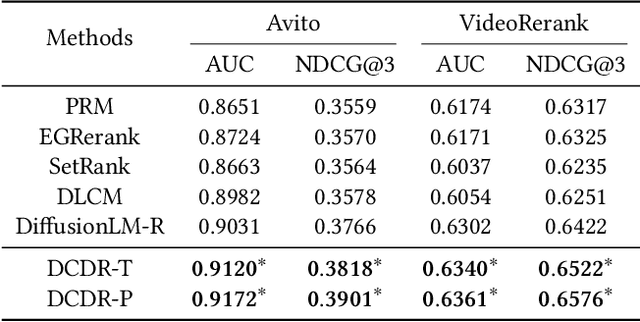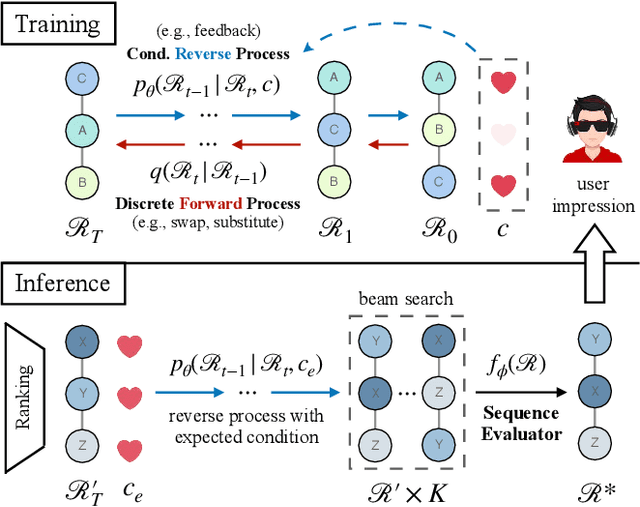Peng jiang
Discrete Conditional Diffusion for Reranking in Recommendation
Aug 14, 2023



Abstract:Reranking plays a crucial role in modern multi-stage recommender systems by rearranging the initial ranking list to model interplay between items. Considering the inherent challenges of reranking such as combinatorial searching space, some previous studies have adopted the evaluator-generator paradigm, with a generator producing feasible sequences and a evaluator selecting the best one based on estimated listwise utility. Inspired by the remarkable success of diffusion generative models, this paper explores the potential of diffusion models for generating high-quality sequences in reranking. However, we argue that it is nontrivial to take diffusion models as the generator in the context of recommendation. Firstly, diffusion models primarily operate in continuous data space, differing from the discrete data space of item permutations. Secondly, the recommendation task is different from conventional generation tasks as the purpose of recommender systems is to fulfill user interests. Lastly, real-life recommender systems require efficiency, posing challenges for the inference of diffusion models. To overcome these challenges, we propose a novel Discrete Conditional Diffusion Reranking (DCDR) framework for recommendation. DCDR extends traditional diffusion models by introducing a discrete forward process with tractable posteriors, which adds noise to item sequences through step-wise discrete operations (e.g., swapping). Additionally, DCDR incorporates a conditional reverse process that generates item sequences conditioned on expected user responses. Extensive offline experiments conducted on public datasets demonstrate that DCDR outperforms state-of-the-art reranking methods. Furthermore, DCDR has been deployed in a real-world video app with over 300 million daily active users, significantly enhancing online recommendation quality.
 Add to Chrome
Add to Chrome Add to Firefox
Add to Firefox Add to Edge
Add to Edge